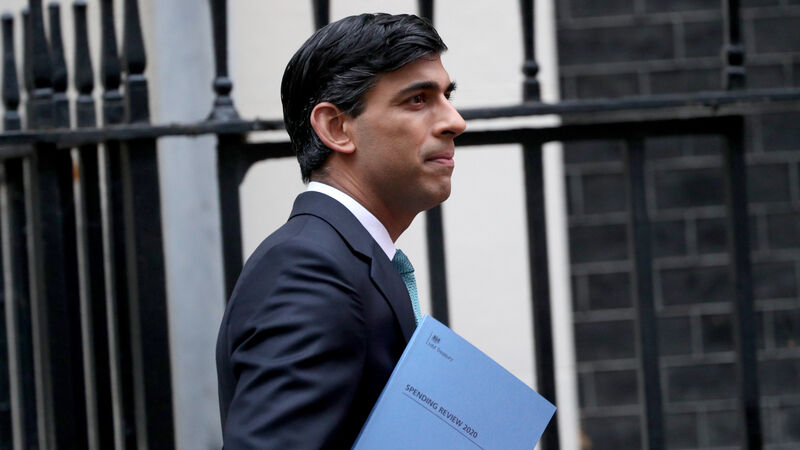UK 'keeps spending taps open' to fight Covid-driven deep slump

UK Chancellor of the Exchequer Rishi Sunak will spend a further £55bn (€61.8bn) in fighting the health and economic costs of Covid. File picture: Yui Mok
UK Chancellor Rishi Sunak is "keeping the spending taps open" during the Covid-19 crisis but the worst mistake he could make is to pull back from the spending spree too soon, a senior economist has said.
Mr Sunak will spend a further £55bn (€61.8bn) to add to the £280bn (€313.9bn), equivalent to 14.5% of Britain's GDP, already committed in the financial year to fighting the health and economic costs of Covid, said Ruth Gregory, senior UK economist, at Capital Economics.











